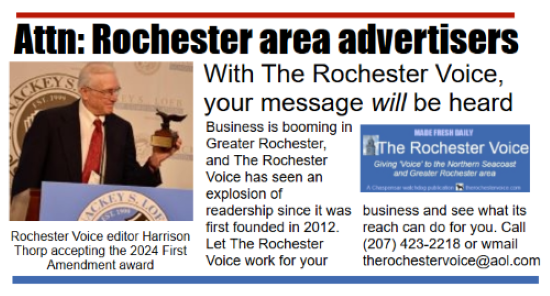CONCORD - The United States Department of Agriculture's Animal and Plant Health Inspection Service confirmed the presence of highly pathogenic avian influenza in a non-commercial backyard flock (non-poultry) in Rockingham County on Wednesday, the USDA announced on Friday.
Samples from the flock were confirmed at the APHIS National Veterinary Services Laboratories in Ames, Iowa.
This is the first confirmed diagnosis of HPAI in domestic birds in New Hampshire, although cases have recently been found in Maine, Connecticut and New York, among other states.
Avian influenza viruses can be transmitted directly from wild birds to domestic poultry or indirectly through contaminated material. The virus spreads directly from bird to bird via airborne transmission or indirectly, through fecal contamination of material, feathers or feed, according to health officials.
New Hampshire state animal health officials are working closely with APHIS in response. The property was quarantined and birds from the flock euthanized consistent with practices in the AVMA Guidelines for the Euthanasia of Animals. The birds will not enter the food system.
Avian influenza does not present a food safety risk; poultry and eggs are safe to eat when handled and cooked properly. No cases of this particular strain of the avian influenza virus have been detected in humans in the United States. According to the U.S. Centers for Disease Control and Prevention, recent detections of this strain of influenza in birds in New England and other states present a low risk to the public.
As part of existing avian influenza response plans, Federal and State partners are working jointly on additional surveillance and testing in areas around the affected flock. The United States has the strongest AI surveillance program in the world, and USDA is working with its partners to actively look for the disease in commercial poultry operations, live bird markets and in migratory wild bird populations.
It is highly recommended that anyone involved with poultry production--from the small backyard to the large commercial producer--review their biosecurity activities to assure the health of their birds. APHIS has materials about biosecurity, including videos, checklists, and a toolkit available at https://www.aphis.usda.gov/aphis/ourfocus/animalhealth/animal-disease-information/avian/defend-the-flock-program/dtf-resources/dtf-resources
Best practices include:
· Discourage unnecessary visitors and use biosecurity signs to warn people not to enter buildings without permission.
· Ask all visitors if they have had any contact with any birds in the past five days.
· Forbid entry to employees and visitors who own any kind of fowl.
· Require all visitors to cover and disinfect all footwear.
· Lock all entrances to chicken houses after hours.
· Avoid non-essential vehicular traffic on-farm.
· After hauling birds to processors, clean and disinfect poultry transport coops and vehicles before they return to the farm.
· Report anything unusual, especially sick or dead birds, to NH Dept. of Agriculture, Markets & Food, Division of Animal Industry, 603-271-2404
For information about this situation or HPAI impacting New Hampshire domestic bird species, contact the NH Dept. of Agriculture, Markets & Food, Division of Animal Industry, State Veterinarian, Steve Crawford, tel. 603-271-2404, email: stephen.k.crawford@agr.nh.gov or Assistant State Veterinarian, Nathan Harvey, 603-271-2404, email: nathan.d.harvey@agr.nh.gov.














